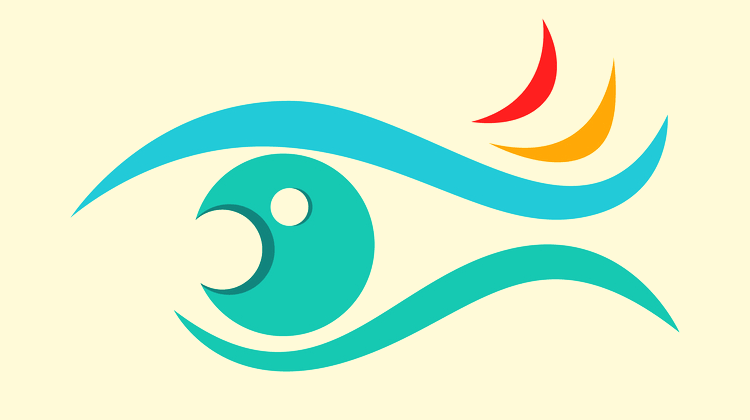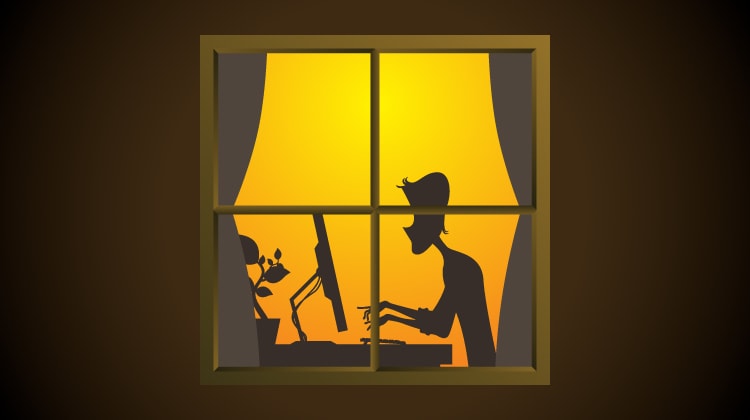Best Jobs For People With Low Vision (And Jobs To Avoid)

Low vision is a chronic condition that can’t be corrected with glasses, contact lenses or surgery, although it’s not a total lack of sight. If you’re worried about getting a job because of low vision, you’ll be relieved to know there are still many opportunities available to you. In this article, you’ll discover some of the best and worst jobs for people with low vision.
WORST WORK CONDITIONS FOR PEOPLE WITH LOW VISION
Some employers aren’t enlightened when it comes to hiring people with low vision. They don’t know how to provide a supportive work environment or haven’t bothered to find out. The following work conditions are unacceptable and should be avoided:
No Appropriate Training
If you’re merely thrown into a job, given no training and left to fumble to get the hang of it, chances of success are slim. You’ll stay at the base of the learning curve, and your lack of progress could jeopardize your job. Management makes no connection between your struggles and lack of instruction.
Lack of Assistive Technology
Assistive technology refers to devices that help people with low vision perform work-related tasks. Whether management is ignorant, indifferent or simply cheap, it’s impossible for someone with impaired sight to competently work without the right equipment. Also, if your employers don’t spring for these devices, you can bet your paycheck will probably reflect their miserliness.
Don’t Adhere to the Americans With Disabilities Act
The Americans With Disabilities Act is a civil rights law that prohibits discrimination based on disability. [source] It requires employers with more than 15 employees to comply and provide disabled employees with “reasonable accommodations” to perform their jobs, so long as it doesn’t place an “undue burden” on the employer.If your employer has their own personal interpretation of “reasonable accommodations” or “undue burden,” you can blow the whistle on them. They can be slapped with a non-compliance fine up to $75,000 and $150,000 for each subsequent violation. [source]
Poor Lighting
When you have low vision, poor lighting can compound your struggle to see. Poor lighting makes it impossible to do your work properly or at all. You can also suffer from eye strain, fatigue, and headaches.A 12 x 12 foot office lit by two 40-watt fluorescent tubes is fine for a person with normal vision. But a person with low vision would need their employer to provide them with six 40-watt fluorescent lights to adequately light the same space. [source]
BEST WORK CONDITIONS FOR PEOPLE WITH LOW VISION
When you’re in a good environment, not only can you thrive, but you’re not defined by your vision. Here are some conditions that can help you feel respected and appreciated:
Companies with Work Hours That Mesh with Mass Transit Schedules
An employee with low vision must depend on mass transportation if they don’t have a friend or family member to drive them. A good employer will understand the situation and adjust the vision-impaired person’s schedule so they can travel to and from work on time.
Companies That Provide Screen-Enlargement Software
Screen enlargement software magnifies the computer screen so it can easily be read. This type of software typically magnifies text and graphics 20 times or more, as well as enlarge cursors and mouse tracking. These programs can also increase contrast, adjust brightness, and shuffle color combinations for maximum readability.
Companies That Are Supportive of Service Dogs
A good employer understands how important it is for a person with low vision to have a service animal in the workplace. A service dog can help you maneuver around obstacles, enter or exit doorways, and help you walk to and from your desk. A good employer recognizes that a service dog makes you a more independent, efficient employee which, in turn, factors into the company’s success.
Companies That Make the Office Layout Easier to Understand
Navigating an office can be tricky if you have low vision. A good boss sympathizes and places brightly colored safety tape strips along walkways and on the edge of each stair. This will help you move safely and easily through the space.Door frames that contrast with walls also serve as guideposts for easier movement. A thoughtful employer will also make sure you know if there’s a change in office layout, such as when furniture has been moved or rearranged.
Companies That Raise Awareness About Low Vision
These are progressive companies that instruct their employees not to avoid or feel awkward around you. They teach their employees that you’re no different from anyone else, only someone without sight. And they remind them that just because you can’t see, your hearing is just fine, and that they should abstain from talking behind your back.
TIPS TO HELP PEOPLE WITH LOW VISION GET THROUGH THE WORKDAY
It’s easy to do self-care during the workday. Here are a few small things that can make a big difference:
- Rest your eyes – If your state permits rest breaks or if you can carve out a little time during lunch, go someplace where you can close and rest your eyes. [source] A cold compress would also be soothing.
- Use the 20-20-20 rule – Relieve eye strain and strengthen your ocular muscles by following the 20-20-20 Rule. This means every 20 minutes, for 20 seconds, stare at something that’s 20 feet away. You can set an alarm for every 20 minutes, as a reminder to take a time out. Even if you can’t easily distinguish distant objects, the exercise will still keep your eyes healthy.
- Have plenty of water and snacks at your desk – If your mobility is reduced because of your vision, stash healthy snacks and bottles of water at your desk. This way, you can have them at your fingertips when hunger or thirst strikes, instead of having to find your way to the kitchen or a vending machine.
- Buddy up with a co-worker – A buddy is someone you team up with for work-related assistance. You can call upon your buddy if you need help with tasks, such as reading a report or finding your way to a conference room. The buddy isn’t meant to help you do everything but is someone you can turn to when you’re genuinely stuck.
WORST JOBS FOR PEOPLE WITH LOW VISION
Not only are the following jobs a bad fit, but they could also be dangerous for a person with low vision:
- Police officer – Police officers have to be able to notice small details in their surroundings at all times. They need to see well enough to use reliable judgment in any situation, which is an ability particularly important at night or in poorly lit conditions. Officers may need to use firearms, and low vision could cause them to make fatal errors. This is definitely not one of the best jobs for people with low vision.
- Mechanic – Customer safety, correct diagnosis, and accurate repairs are largely dependent on a mechanic’s eyesight. Since many car components are small, a mechanic needs precise vision to see and place them exactly where they need to be. A mechanic also needs to have excellent vision to see and correctly pinpoint a problem. Customers’ lives depend on their sight.
- Acupuncturist – Acupuncture is an exacting profession. Practitioners use hair-thin needles that would be difficult or impossible for someone with low vision to see. Low vision may interfere with the correct placement of the needles, making them ineffective and possibly painful.
- Tattoo Artist – While there are the rare few with low vision who have battled the odds and become tattoo artists, it’s bleak territory for someone with impaired sight. [source] The ability to correctly see customers’ design ideas and accurately recreate the intricate detail is a must for this profession.
BEST JOBS FOR PEOPLE WITH LOW VISION
Luckily, there are many great jobs where your vision isn’t nearly as important to an employer as who you are and what you can do:
- Sign language interpreter – A sign language interpreter is an ideal career for someone with low vision because it’s completely dependent upon your hearing. Using American Sign Language, you transform words into signs for people who are deaf or hard of hearing. [source] You’ve probably seen sign language interpreters on stage with politicians, conveying their words to the hearing-impaired members of their audience with signs representing letters and words.
- Audio engineer – This is another excellent career that completely relies on hearing. If you love music and are a bit of an electronics geek, audio engineering is a great fit. You’ll edit, mix, and create sounds, as well as home in on subtle sounds to build into something special. Audio engineers don’t just work in music studios; they can work in TV, radio, movies, and even video games.
- Massage therapist – Because your vision is impaired, you’re probably highly attuned to tactile sensations. This heightened sensitivity could help you provide more thorough and effective massages than your sighted counterparts. You’ll also be able to read clients’ body language through touch and shift your technique accordingly.
- Nutritionist – As a nutritionist, you’ll guide clients toward healthy living. This could include sharing recipes, teaching them how to grocery shop, assessing dietary habits, and creating meal plans. You’ll help them replace underlying unhealthy habits to create positive, long-lasting change.
- Vision rehabilitation therapist – This is a job where you can shine since you and your clients share the same disability. You’ll have a deep sensitivity and compassion, and you’ll have firsthand knowledge of exactly what low vision is and how to effectively approach treatment.
- Accountant – As long as there are taxes, there will be a need for accountants. You could easily be one of them. Some accounting firms permit telecommuting, so you can work for an organization without having to deal with public transportation hassles. You can also work from home as a solopreneur accountant. Special low-vision accounting software is available for most accounting tasks. If you need to review hard-copy tax laws, page scanners are available that speak words onto typed pages.
- Audiologist – Addressing everyone from babies to senior citizens, an audiologist is a professional who diagnoses and treats hearing and balance problems. The demand for audiologists continues to increase with the passage of newborn hearing screening laws. [source] And, of course, you don’t rely on your vision with this job.
- Customer service representative – If you’re a tech-savvy people-person with thick skin, customer service could be right for you. Customer service agents typically work over the phone or on chat, and you can use adaptive technology for anything that needs to be handled on a computer. No two callers want the same information, so it’s a good fit if you like variety. Check out my complete guide to becoming a customer service representative for more information.
- Survey-taking – What could be easier than signing up, completing a profile, giving your opinion about products and services and getting paid? That’s what survey-taking is all about, and it’s a great option for making money online.Surveys are important because many companies depend upon consumer feedback to fine-tune their merchandise. Cash rewards can range from $1 to $20, so if you take a few a day, you can earn a tidy sum. Sign up with as many survey companies as you’d like, and participate 100 percent from home. You could also check out my complete guide to survey-taking.To see the computer screen as easily as possible while taking surveys, consider getting a computer screen magnifier, or press your computer’s “control” button along with either the plus or minus sign to adjust text and image sizes for survey-taking. [source]
- Affiliate marketing – One of the most popular and lucrative ways to make money online is through affiliate marketing. You can do it from home anytime, any day, and it’s quite easy to do if you have low vision. No particular education or previous experience is necessary.When you’re an affiliate marketer, you earn a commission by promoting a business’ products via advertiser links on your own website. Whenever someone clicks on the link and buys the merchandise, you’ll earn commissions. Once things get rolling, affiliate marketing can be great for generating passive income.
NOW IT’S YOUR TURN!
What jobs for people with low vision would you recommend? How have you dealt with low vision in the workplace before? Leave your comments below!







